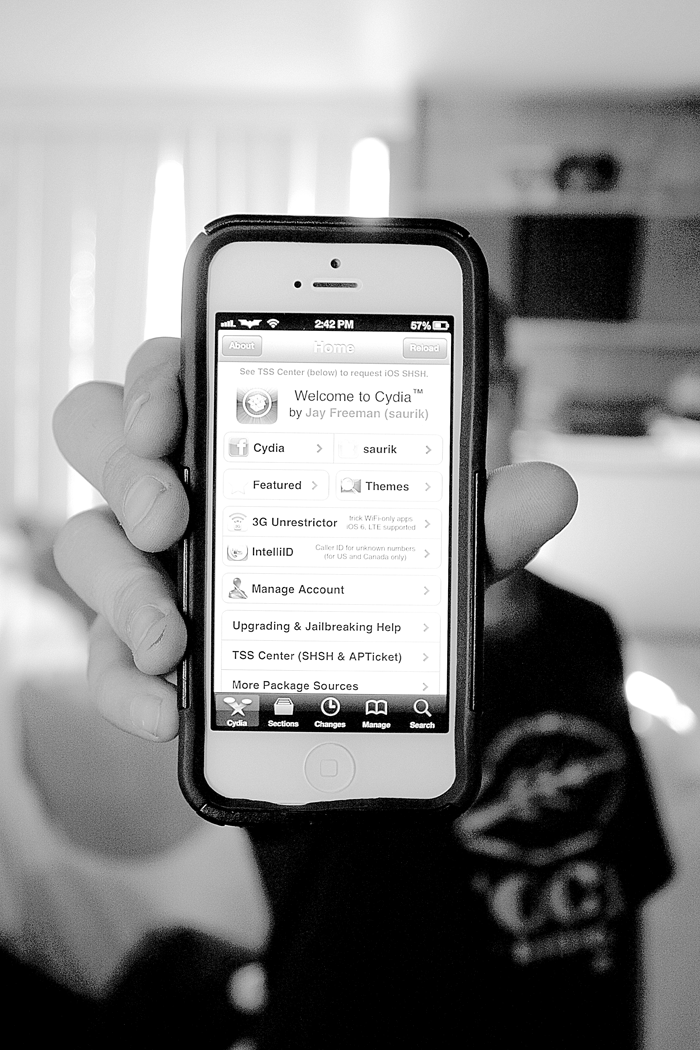Tech lovers and hackers alike patiently await the jailbreak for Apple’s iOS 7 operating system, which was released on Sept. 18, but it seems that they’ll have to wait a little longer.
While rumors of the new jailbreak have invaded the internet, some of the lead jailbreak developers, including Evad3r, announced messages via twitter that said “Everybody lies. Jailbreak only after iOS 7.1.” Evad3r said that they are still working on the jailbreak for the newest operating system.
This process of enabling iPhone users to take advantage of the technology not sanctioned by Apple is commonly known as “jailbreaking.” Jailbreaking is used popularly as an umbrella term referring to “unlocking” Apple devices including iPhones and other devices. The computer application used to perform this process, JailbreakMe, is a web-based third party application installer that was behind the creation of the term.
A similar process, called “rooting,” can also be done with Android phones. Rooting allows a user to obtain administrative access to the phone, which enables them to change system files and programs that would normally marked as read-only on the device.
Jailbreakers seek “exploits,” which are basically bugs in the software or firmware, and jailbreaks come out just as frequently as Apple updates its operating systems, which are upgraded to fix any bugs that jailbreakers might exploit.
Over the years, there has been quite the stigma attached to the idea of jailbreaking phones. While it was rumored that iPhone users would be arrested or sued if the Apple store caught them with a jailbroken device, the consequences actually aren’t so dire. A jailbreak merely voids the warranty, making the users unable to replace their broken, lost or stolen device, according to the Apple website.
To take advantage of a jailbroken device, a user installs Cydia, an unauthorized alternative to the App Store. Many jailbreakers describe this alternative as a black market, where apps rejected for the App Store are submitted and often downloaded for free. App developers that were previously denied by Apple flock to Cydia as an alternative way to share their apps with device users, according to Jake Uriega, an iPhone user.
“Cracked” apps, which are normally available for a price in the App Store, can be downloaded for free via Cydia. While jailbreaking is legal, the piracy via Cydia is still illegal.
Other appeals of jailbreaking include liberty with the iPhone aesthetic, the ability to expand and change the capabilities of Siri and the general ability to manipulate the user interface.
Proponents of jailbreaking, namely the Electronic Frontier Foundation, claim that the use by jailbreakers is Fair Use of Apple’s iOS. In 2012, the Library of Congress ruled that jailbreaking was exempted from section 1201 protection of the Digital Millenium Copyright Act, which allowed jailbreaking to be legal for the next three years, according to an article by Kevin Rogers in the Journal of Technology Law and Policy.
While the laws are constantly changing as new devices emerge, The exemption was declared after Apple claimed jailbreaking violated a copyright to the iPhone operating system.
“It was determined that Apple exercised protections on some programs that were independently created, and therefore, they were not copyrighted by Apple,” Rogers said. “The Librarian considered that granting an exemption to jailbreakers would make apps more accessible on a whole, which favors the growth of technological advancement.”
The jailbreak community is in a sketchy neighborhood, however, as the jailbreaker must be wary not to download viruses or be fooled into spending money on an illegitimate jailbreak. Various jailbreak sites offer the jailbreak for iOS 7, but it’s not free of charge, which is a sign that makes users wary of malicious software.
At the beginning of October, Evad3rs warned the jailbreak community via Twitter not to download or buy any links or files that claimed to be a jailbreak for the iOS 7.0.2 because they could be scams.
Earlier this year, Apple denounced the “unauthorized modifications” as likely to cause numerous issues to the hacked Apple device, including security vulnerabilities, shortened battery life and inability to apply future software updates.




